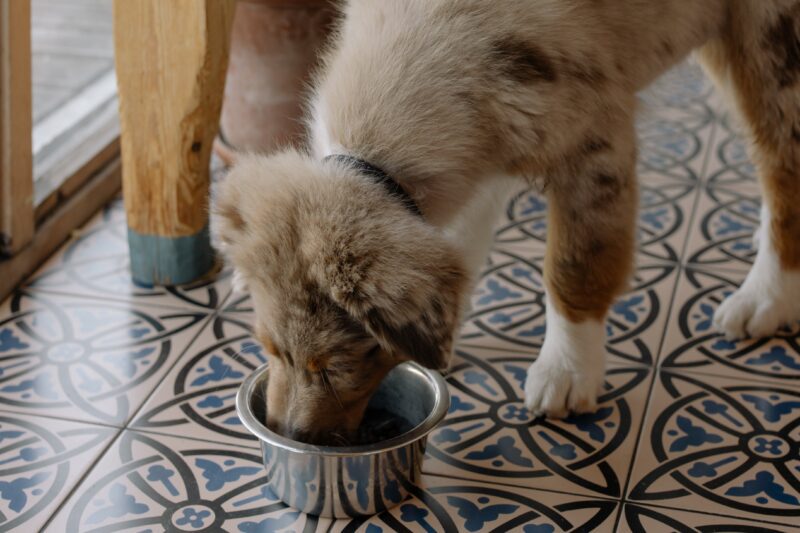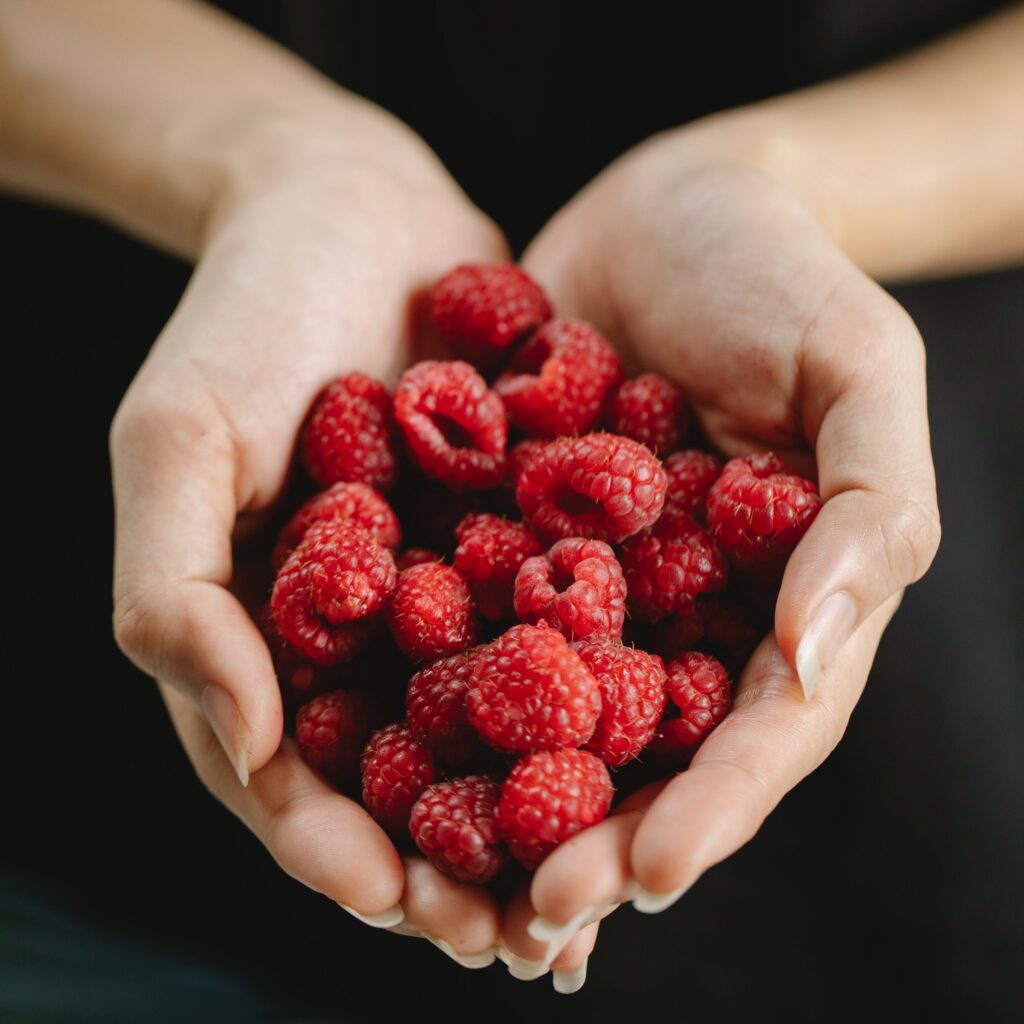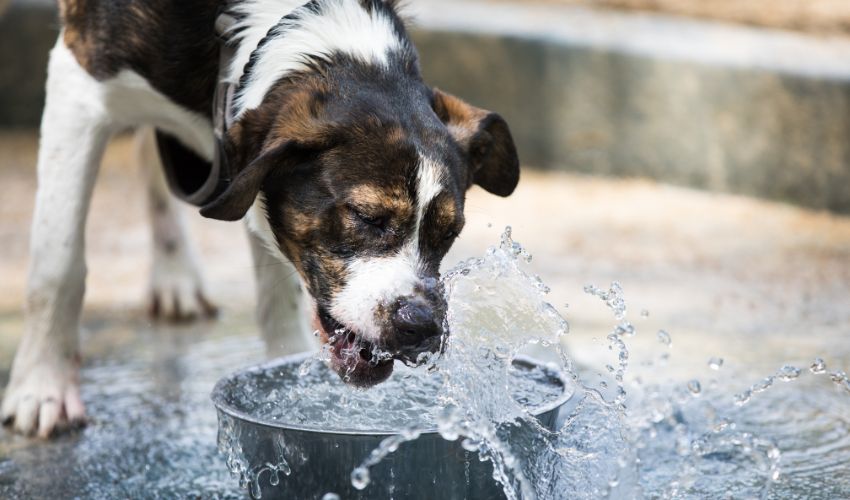In the vast landscape of pet nutrition, the question of whether dogs can enjoy raspberries is a common one among pet owners. The allure of these vibrant berries extends beyond the human palate, prompting curiosity about their safety and potential benefits for our canine companions. In this in-depth exploration, we’ll uncover the nutritional value of raspberries, address the safety concerns, and provide insights into how you can responsibly integrate these berries into your dog’s diet.
Section 1: The Nutritional Powerhouse of Raspberries
Raspberries aren’t just a burst of flavor; they also pack a nutritional punch that can contribute positively to your dog’s well-being. Understanding the key components of raspberries is crucial in determining whether they can be a healthy addition to your furry friend’s diet.
1.1. Antioxidant Richness:
Raspberries are laden with antioxidants, including quercetin and ellagic acid. These compounds play a pivotal role in combating oxidative stress, potentially enhancing your dog’s immune system and overall health.
1.2. Fiber for Digestive Health:
The high fiber content in raspberries can be beneficial for your dog’s digestive system. Fiber aids in maintaining regular bowel movements, reducing the risk of constipation, and contributing to a healthy gut.
1.3. Vitamins and Minerals:
Raspberries are a natural source of essential vitamins such as vitamin C and minerals like manganese. These nutrients are vital for various bodily functions, including immune support, collagen formation, and bone health in dogs.
Section 2: Can Dogs Safely Consume Raspberries?
The safety of feeding raspberries to dogs lies in understanding the dos and don’ts of this fruity treat. While raspberries offer numerous health benefits, it’s crucial to approach their inclusion in your dog’s diet with moderation and awareness.
2.1. Moderation as the Guiding Principle:
Moderation is key when introducing raspberries to your dog’s diet. Treats, including berries, should constitute no more than 10% of your dog’s daily caloric intake to maintain a balanced and healthy diet.
2.2. Fresh vs. Processed Raspberries:
Opt for fresh raspberries over processed alternatives like jams or jellies. Fresh berries retain their natural nutrients without the addition of sugars and preservatives that can be harmful to dogs.
2.3. Size Matters:
To minimize choking hazards, cut raspberries into small, bite-sized pieces before offering them to your dog. This not only aids in safe consumption but also ensures easy digestion.
2.4. Seed Considerations:
While the seeds in raspberries are harmless to humans, they contain small amounts of cyanide, which can be problematic for dogs. Prior to feeding raspberries, remove the seeds to eliminate any potential risks.
Section 3: Potential Risks and Allergies

As with any new addition to your dog’s diet, it’s important to be vigilant about potential risks and allergic reactions. Understanding these risks empowers you to make informed decisions and safeguard your pet’s well-being.
3.1. Allergic Reactions:
Dogs can develop allergies to certain foods, including raspberries. Monitor your dog closely when introducing raspberries for the first time, and be attentive to signs of allergies such as itching, swelling, or gastrointestinal distress. If any adverse reactions occur, consult your veterinarian promptly.
3.2. Gastrointestinal Upset:
Some dogs may experience digestive upset, such as diarrhea, when introduced to new foods. To minimize this risk, start with small quantities of raspberries and observe your dog’s response before gradually increasing the serving size.
3.3. Special Considerations for Health Conditions:
Dogs with pre-existing health conditions, such as diabetes, may need extra consideration due to the natural sugars present in raspberries. Consult with your veterinarian to tailor your dog’s diet to their specific health needs.
Section 4: Creative and Safe Ways to Include Raspberries in Your Dog’s Diet
Now that we’ve established the safety guidelines, let’s explore some inventive ways to incorporate raspberries into your dog’s diet, turning this tasty treat into a delightful and nutritious experience.
4.1. Frozen Raspberry Popsicles:
Create refreshing summer treats by freezing raspberries. Your dog will appreciate the cool sensation, and you can rest easy knowing they’re enjoying a healthy snack.
4.2. Homemade Berry Dog Biscuits:
Combine raspberries with dog-friendly ingredients like oats and peanut butter to whip up delicious homemade dog biscuits. This allows you to control the ingredients and avoid unnecessary additives.
4.3. Mixed Berry Meal Topper:
Enhance your dog’s regular meals by adding a handful of raspberries to their food. This not only introduces variety but also provides a burst of flavor and nutrition.


Conclusion:
In the ongoing debate about whether dogs can eat raspberries, the consensus leans toward a positive stance, with a few essential considerations. Raspberries, when introduced responsibly and in moderation, can contribute to your dog’s overall health and happiness. By following the outlined safety guidelines, removing seeds, and monitoring for any adverse reactions, you can confidently offer your furry friend the joy of a berrylicious treat. Always consult with your veterinarian before making significant changes to your dog’s diet, ensuring that their individual health needs are met. So, go ahead, savor the berrylicious delight with your canine companion, and revel in the satisfaction of providing a wholesome and nutritious treat.
















